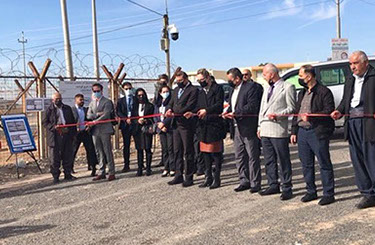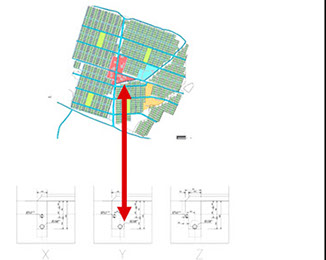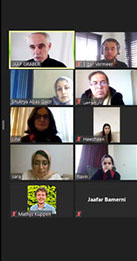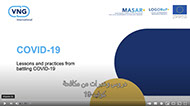Annual Update 2021 VNG International

Opening of the road which connects the Syrian and Iranian refugee camps in Qushtapa with the local community and other neighbourhoods within the municipality, thereby contributing to increased mobility, social cohesion and access to public services.


By facilitating online scenario development trainings, LOGOReP was able to adopt innovative working methods to adjust to the pandemic.
‘The Logorep project is really well done. It shows how you progress because of COVID-19, not despite. Clearly you have been able to build a good record with your counterparts and have a daily dialogue.’
Mr. Aslak Gimse Solumsmoen,
Head of Field Office UNHCR
‘COVID-19 affects our working style. As the planning team in the General Directorate of Urban Planning of MoMT we have the opportunity to work online with VNG International. We appreciate that they helped and encouraged us to work in this new way. It is a good experience for our team to work online, especially with regards to Urban Planning subjects.’
Ms. Ravin Azad,
Urban Planner at the Ministry of Municipalities and Tourism.
Also see:
Video
‘Exchanging lessons and practices from battling COVID-19 between the Netherlands and Iraq’
News article
‘Opening of LOGOReP Erbil-Kirkuk road in Iraq’

Dealing with Conflict, Fragility
and Migration by strengthening democratic
local government
Featured Project
Iraq, LOGOReP II: the second Local Government Resilience Programme
The Local Government Resilience Programme Iraq (LOGOReP Iraq) has the objective to improve prospects of vulnerable host communities, internally displaced persons (IDPs) and refugees by improving resilience of local authorities and communities in Iraq. It does so by increasing access of host, IDP and refugee communities to improved basic services and creating additional job opportunities.
After the inception phase was finished early 2020, three pilot municipalities (Qushtapa, Kawergosk and Basirma) were selected for the creation of a longer term development plan, which also takes into account the needs of refugees and IDPs living in the area. LOGOReP’s contribution to development is multifold. By working with the Ministry of Municipalities and Tourism (MoMT), capacity is strengthened at national level to assist municipalities in stimulating economic and territorial development. Simultaneously, the project has a small budget for physical investments to improve public service delivery, as a first step towards the realisation of the development vision.
Results achieved:
- Addressing the COVID-19 challenges, the project has been able to substitute the foreseen activities on location with an online working schedule with the MoMT and the pilot municipalities. This has led to successful exchanges and trainings on scenario planning and modern urban planning methodologies. As a result, internal collaboration has improved.
- With Qushtapa municipality a new development vision for the municipality has been prepared. In 2020 a draft vision was made ready for endorsement by the KRG’s main stakeholders.
In addition, updates to the existing zoning within the municipality have been developed under the project to enable Qushtapa to modify its master plan.
- Work on the development visions for the other two pilot municipalities, Basirma and Kawergosk, has started.
- A first pilot investment project in Qushtapa (extending and expanding the Old Erbil-Kirkuk road) has been completed.
The restoration and paving of the road that connects Erbil to Kirkuk is a sustainable technical solution that connects the refugee settlements with the hose community and thus improves access to public services, social cohesion and income opportunities.
- When COVID-19 led to many challenges and questions by public authorities, LOGOReP together with the other VNG International project MASAR, was able to support crisis management KRI-wide.